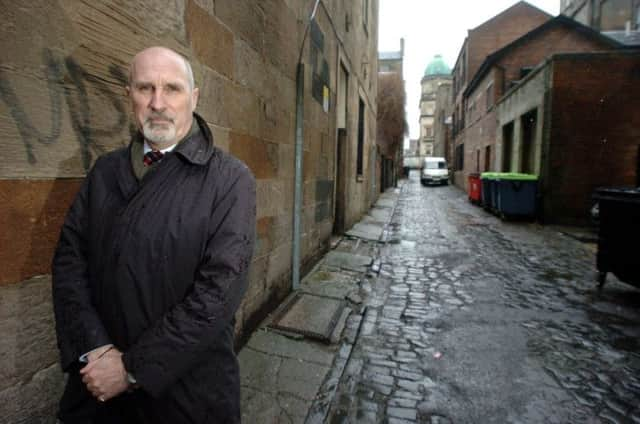Sexism affects men says expert on violent offenders


John Carnochan, who was a policeman for almost 40 years, said despite his own experience of growing up in an era when masculine courage was celebrated he believes rapid changes in society have left many men – especially those from troubled backgrounds – struggling with what sort of behaviour is deemed appropriate for men in modern day Scotland.
Carnochan cites the suicide rates among Scottish men noting that “from the invasion of Afghanistan in 2001 and Iraq in 2003 up to October 2010, 43 Scottish service men lost their lives... In the same period 5,624 men in Scotland committed suicide.”
Advertisement
Hide AdAdvertisement
Hide AdWriting in new book about the pressures facing men, in which four men give their views on the challenges their sex faces today. Carnochan asks “where is the war being fought? Where are the men most at risk?”
In a week which has seen an unprecedented number of women MPs promoted into Prime Minister David Cameron’s Cabinet, Carnochan, says: “I think many of us men have recognised that women have a good case, we feel a bit guilty about it all, we recognise the unfairness of things and support their cause. But have we allowed this argument debate to be too one-sided?
“I’m not suggesting that we should roll back decades of change towards a more gender-equal society, but there are often unforeseen or unexpected outcomes or consequences to such significant changes and maybe what we are sensing as individuals are these outcomes.”
Carnochan – a former detective chief superintendent with Strathclyde Police who co-founded the region’s violence reduction unit in 2005 to tackle gang and knife crime – said: “Feminism is not about equality when women think ‘now it’s our turn to do it to them’.
“There is the obvious sort of sexism where men are largely absent from jobs in nurseries, teaching and social services. But there is the casual sexism directed at men too, every day.
“For example, when I was taking my youngest daughter to nursery school a woman said to me ‘are you babysitting today?’ I replied ‘no I’m parenting’.
“The assumption was if a father was looking after the baby something must be wrong with the mother.”
Carnochan, 64, said it was the lack of positive male role models to “temper” violence which was particularly damaging for young men.
Advertisement
Hide AdAdvertisement
Hide AdPolitical commentator Gerry Hassan, the book’s editor, said there was an absence of debate on how men were treated in Scottish society.
He added: “Men are everywhere in Scotland, in public life, in sport, on television, making a noise in pubs.
“But the contradiction is that men mostly remain totally silent about what is happening to them.
“Writers such as William McIllvanney and James Kelman write all about the plight of men, but don’t reflect on it. Rather, they concentrate on humanity. There’s been this huge absence which doesn’t help anyone.
“Women have adapted better than men to the economic and social changes over the past 30 to 40 years. This has also led to a tendency to characterise men as more helpless or lost which is a stereotype which can hurt men.”
Alastair Pringle, Scotland director of the Equality and Human Rights Commission, said: “It is clear gender stereotyping can affect men just as it can women and some of the old attitudes about what is “men’s work” and “women’s work” persist.
“Our own research into modern apprenticeships clearly demonstrates this with less than 15 per cent of training placements in social care and child care in Scotland going to men.
“There should be no jobs or professions which are ‘men’s’ or ‘women’s’ and we should be encouraging young people to reach their potential in whatever field they want to and not to feel restricted by outmoded traditions”.
Advertisement
Hide AdAdvertisement
Hide AdAlso writing in the book called On Being A Man - Four Scottish Men in Conversation, are journalist David Torrance, health researcher Pete Seaman and Sandy Campbell, founder of Working Rite youth charity. The book is due out later this month.